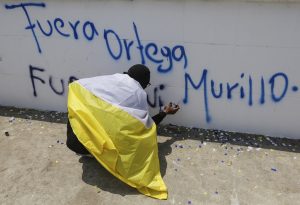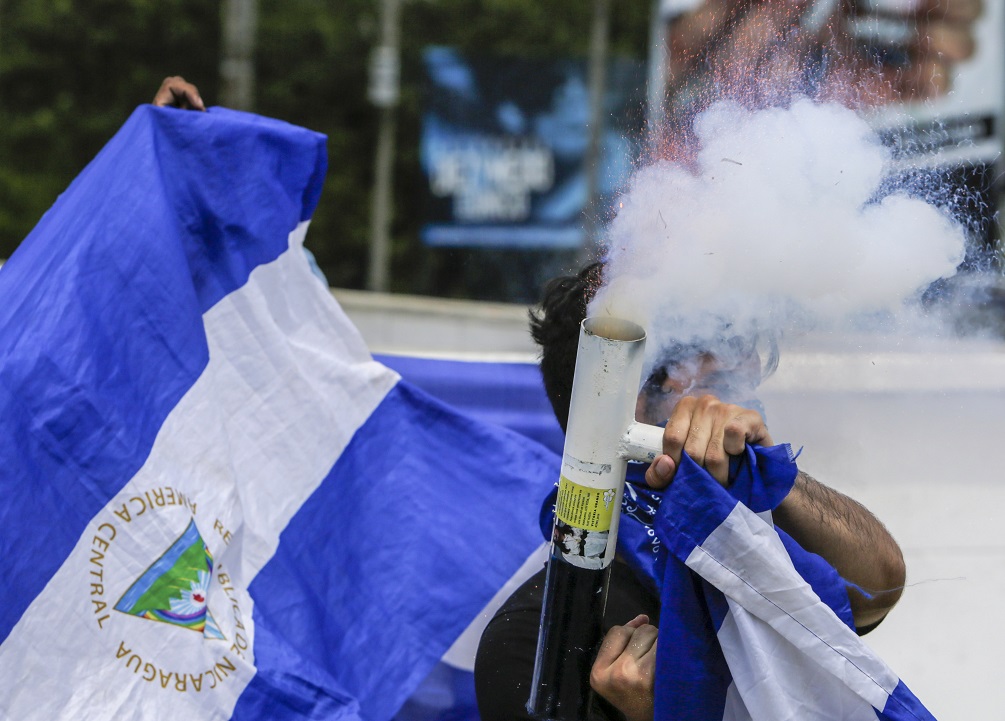The Daniel Ortega government has made democracy “impossible” in Nicaragua, said on November 19 the Organization of American States’ (OAS) commission created to seek a peaceful solution to the crisis in the Central American country.
Nicaragua is engulfed in a political and social crisis since the massive protests that started in April 2018 against the Ortega government, whose repression killed and imprisoned hundreds of people. Tens of thousands are also in exile in neighboring countries.
“The commission understands that the control and subordination mechanisms that the government of Nicaragua has been developing with respect to other branches of government, including the judiciary, the legislature, the Supreme Electoral Council, and others, make the country’s democratic functioning impossible, thus making it a co-opted State that’s incompatible with the rule of law,” the OAS High-Level Commission on Nicaragua concluded.
The group, created at the OAS General Assembly in June and made up in August of representatives from Argentina, Canada, Jamaica, Paraguay, and the United States, pointed to an “alteration of the constitutional regime” in the country because of Ortega’s actions.
“The commission is of the view that actions taken or permitted by the government of Nicaragua since April 2018 are inconsistent with the rights and guarantees protected by its own 1987 Constitution, which give rise to an alteration of the constitutional regime that seriously impairs the democratic order in Nicaragua, as outlined in Article 20 of the Inter-American Democratic Charter,” the commission said.
The “critical situation” in Nicaragua requires “urgent attention” by the international community, the group said, stating that in order to reestablish democracy, the country’s “suppressed civil and political liberties” should be restored, and institutional reforms should occur as a first step to enable “fair, free, and transparent elections.”
The repression of protests against the Nicaraguan government, which arose in response to proposed social security system reforms but led to a movement urging Ortega to give up power, left at least 328 people dead, 130 detained, and 88,000 exiled, according to the latest report from the Inter-American Commission on Human Rights (IACHR), an autonomous entity of the OAS.

“State persecution”
On November 19, the IACHR condemned the “State persecution to which the victims of human right violations and their families are increasingly subjected to in Nicaragua” and urged authorities to “cease repression and the closure of democratic spaces.”
Ortega, who has been in office since 2007, denounced the opposition’s protests as an attempted coup, supported by Washington.
In its report, the OAS High-Level Commission on Nicaragua said that the Ortega government refused to meet with its members, who were banned from entering the country.
However, the commission “was able to hear testimonies from a number of victims and stakeholders,” it said, stressing the support of El Salvador in facilitating meetings there with “important witnesses.”
Since the Ortega government refuses to collaborate or resume conversations with the opposition, which the Nicaraguan head of state ended on July 30 after talks were suspended in May, the commission declared diplomatic efforts to be “unsuccessful.”
It recommended that the OAS Permanent Council, an executive body of 34 active nations in the regional bloc, “declare there is an unconstitutional alteration of the constitutional regime that seriously impairs the democratic order in Nicaragua and immediately convene a special session of the General Assembly to review the matter.”









